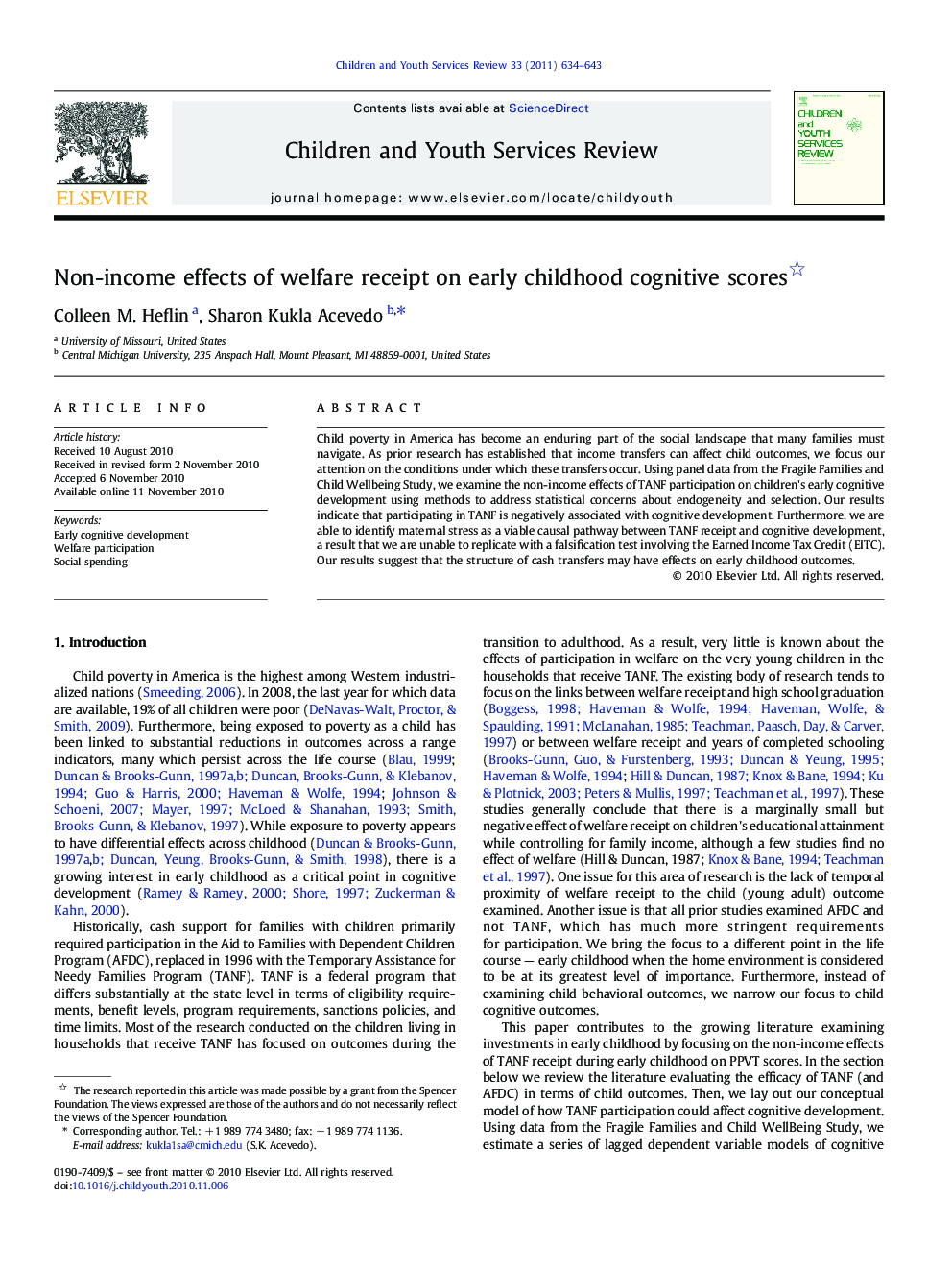| Article ID | Journal | Published Year | Pages | File Type |
|---|---|---|---|---|
| 346332 | Children and Youth Services Review | 2011 | 10 Pages |
Child poverty in America has become an enduring part of the social landscape that many families must navigate. As prior research has established that income transfers can affect child outcomes, we focus our attention on the conditions under which these transfers occur. Using panel data from the Fragile Families and Child Wellbeing Study, we examine the non-income effects of TANF participation on children's early cognitive development using methods to address statistical concerns about endogeneity and selection. Our results indicate that participating in TANF is negatively associated with cognitive development. Furthermore, we are able to identify maternal stress as a viable causal pathway between TANF receipt and cognitive development, a result that we are unable to replicate with a falsification test involving the Earned Income Tax Credit (EITC). Our results suggest that the structure of cash transfers may have effects on early childhood outcomes.
Research Highlights► We find that participation in TANF is associated with lower PPVT scores. ► This result is sensitive to robustness checks. ► Maternal stress is the causal pathway through which the TANF effect flows. ► Increases in maternal stress are partially responsible for the negative effect. ► The structure of the social safety net may have implications for child outcomes.
